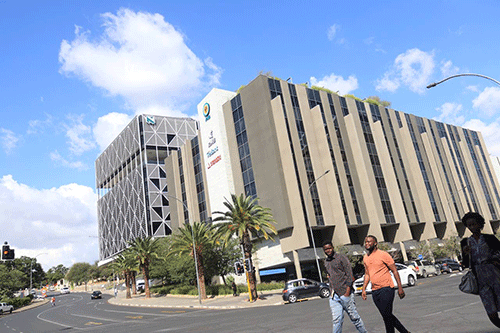Lawmakers are investigating how they can rescue ordinary consumers from high interest rates and exorbitant charges at commercial banks. This is as Namibian consumers continue battling economic hardship as a result of stagnant income in the face of escalating interest rates and the ever-increasing cost of living.
Popular Democratic Movement (PDM) parliamentarian Hidipo Hamata recently made these remarks in the National Assembly while contributing to a motion to discuss the possibility of investigating multiple charges resulting in over profiteering by commercial banks in Namibia.
“There is incontrovertible evidence that the complex array of bank charges and lack of transparency, combined with increasing dependence on non-interest income, leads to greater profitability for these banks. The big question is, how should we, as lawmakers, address this problem that has drained the pockets of our people for far too long? Do we increase competition or do we introduce and enforce regulation?” questioned Hamata.
Hamata noted that regulation could make things easier by forcing banks to simplify their charges for particular services through the introduction of a single simple charge for each service rather than charges that vary with the size of a transaction.
Regulation could further limit the maximum amount banks can charge customers for certain services and would oblige banks to offer a maximum cost package of services to consumers. Hamata argued this would encourage cooperation between banks as well as with other institutions to enable services to be delivered at the lowest possible cost.
Last month, parliamentarian Veikko Nekundi called on the National Assembly to urgently amend the Bank of Namibia (BoN) Act to enable the central bank to protect the most vulnerable in Namibian society.
In the same vein, a local law firm recently approached the central bank in a bid to compel commercial banks to provide more relief for heavily indebted Namibians, particularly as banks continue to repossess homes to the financial detriment of ordinary citizens.
Motivating his motion at the time, Nekundi said bank charges are but another scheme by commercial banks to swindle people out of their hard-earned money.
“These bank charges are not only high; they are unjustifiable and unreasonable. These schemes are designed to rob our people and derail them economically. When BoN directed that cash deposit fees be done away with, the capitalist institutions quickly came up with account management fees, another daylight robbery scheme,” the parliamentarian charged.
The motion, according to Nekundi, who is also the works and transport deputy minister, seeks to amend the central bank legislation to include commercial bank regulation and provide BoN the right to oversee all bank charges.
He, therefore, requested the motion to be transferred to the relevant standing committee for further interrogation.
Furthermore, Hamata last week stated Namibian households on average spend at least 17.8% of their income on servicing loans from banking institutions.
He added commercial banks have repossessed residential properties valued at N$251 million during the past five years until the end of June last year.
“There is clear evidence that the profitability of Namibia’s banking sector is high. As lawmakers, we are therefore faced with the dilemma of whether to assist the consumer by increasing competition in the sector or regulating prices. Both these alternatives could have their own drawbacks. But we certainly need to assist the consumer by regulating prices. While it remains true that banks are private businesses, whose main objective is to maximise profits for their shareholders, they still need to be regulated in order to make sure they are not stealing from the public – and as such, it is important for them to ensure a sound, stable and efficient payment system, and at the same time find ways to keep fees affordable to consumers,” charged the parliamentarian.
The concerned Hamata also noted banks encourage customers to make use of internet banking services, which however comes at a cost.
He added Namibian banking clients face two main difficulties: first, the cost of obtaining information and making useful comparisons is high – and second, choice is limited.
The lack of easily available information and access to real time information for entry accounts holders further makes it difficult to identify what the exact charges are and how these compare with those charged at competing banks.
Bank profits
Nedbank Namibia recorded a total income of N$1.2 billion for the year ended 31 December 2022, representing an increase of 13% from the previous financial year, with profit after tax up by 35% to N$275 million.
Capricorn Group Limited achieved solid results with profit after tax for the six months ended 31 December 2022, increasing by 20.3%, compared to the prior period. The annualised return on equity also increased to 16.6% (December 2021: 14.9%).
Standard Bank Namibia shook off the adverse impact of Covid-19 in its 2022 year-end results after the bank recorded an increased profit of 70.5% for the year – up from N$366 million to N$624 million.
This is according to the bank’s annual report for 2022.


